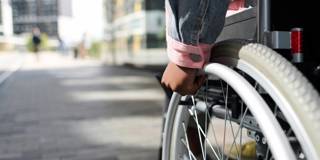Disability is both a cause and a consequence of poverty, especially for women. If the world is to have any hope of achieving the Sustainable Development Goals – especially eliminating poverty, achieving gender equality, and enhancing social and economic inclusion – the needs of people with disabilities must be fully considered.
ACCRA – It is well known that women in developing economies have fewer educational and employment opportunities than their male counterparts, leading to higher rates of poverty. In Ghana, for example, men have higher employment rates and incomes than women, and are less likely to be engaged in vulnerable jobs. Less widely recognized is that, by some metrics, the gap is not narrowing quickly enough: women in developing economies continue to account for a significant share of the economically disadvantaged. Add disability to the mix, and the challenges facing women are even greater.

ACCRA – It is well known that women in developing economies have fewer educational and employment opportunities than their male counterparts, leading to higher rates of poverty. In Ghana, for example, men have higher employment rates and incomes than women, and are less likely to be engaged in vulnerable jobs. Less widely recognized is that, by some metrics, the gap is not narrowing quickly enough: women in developing economies continue to account for a significant share of the economically disadvantaged. Add disability to the mix, and the challenges facing women are even greater.